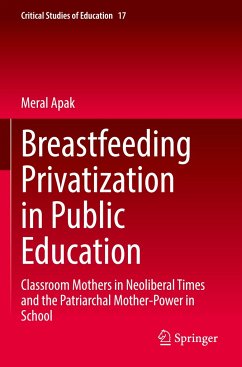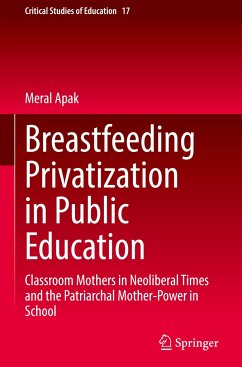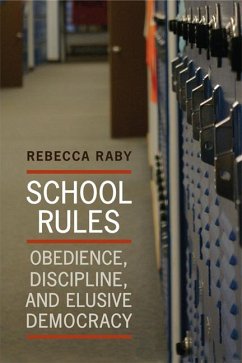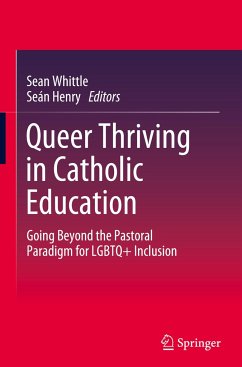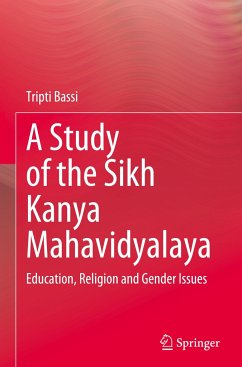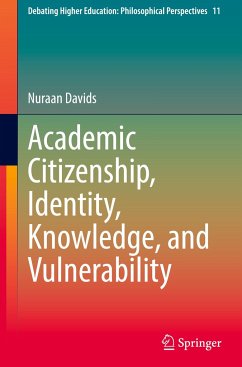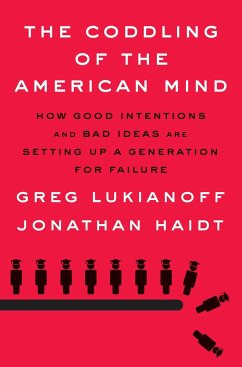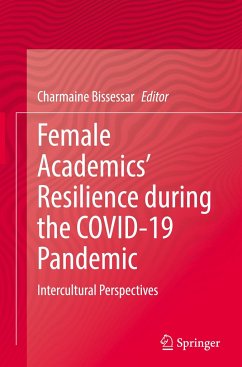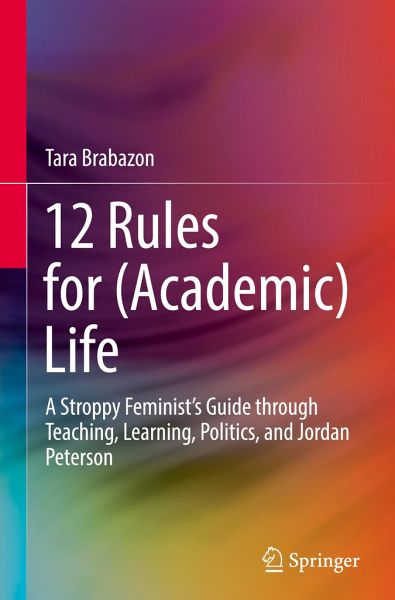
12 Rules for (Academic) Life
A Stroppy Feminist's Guide through Teaching, Learning, Politics, and Jordan Peterson

PAYBACK Punkte
11 °P sammeln!
These are strange times. Climate crises. Health crises. Collapsing systems. Influencers. And yes - Jordan Peterson.We are currently living in a (Post) Peterson Paradigm. This book - 12 Rules for (Academic) Life - explores what has happened to teaching, learning and politics through this odd and chaotic intervention. Deploying feminism, this lens and theory offers a glass-sharpened view of this moment in international higher education. It is organized through twelve mantras for higher education in this interregnum, and offers new, radical, edgy and passionate methodologies, epistemologies and o...
These are strange times. Climate crises. Health crises. Collapsing systems. Influencers. And yes - Jordan Peterson.
We are currently living in a (Post) Peterson Paradigm. This book - 12 Rules for (Academic) Life - explores what has happened to teaching, learning and politics through this odd and chaotic intervention. Deploying feminism, this lens and theory offers a glass-sharpened view of this moment in international higher education. It is organized through twelve mantras for higher education in this interregnum, and offers new, radical, edgy and passionate methodologies, epistemologies and ontologies for a University sector searching for a purpose.
This is a feminist book which targets a feminist audience, both inside and outside higher education. It presents a clear focus on how this Peterson moment can be managed and challenged, when in future such academics deploy social media in this way. This book is also a partof higher education studies, exploring the role of the public / critical / dissenting / organic intellectual in debates about the political economy, identity/politics and leadership.
A question of our time - through a climate emergency, a pandemic and polarized politics - is why Professor Jordan Peterson gained profile and notoriety. The Jordan Peterson moment commenced in September 2016 with his YouTube video, "Professor against political correctness," and concluded with his debate with Slavoj Zizek on April 19, 2019. From this moment, his credibility was dented, if not destroyed.
Jordan Peterson infused scholarly debates with Punch and Judy extremism and misunderstandings. Instead, this book offers research rather than certainty, interpretation rather than dogma, evidence rather than opinion, and theory rather than 'moral truth.' The goal is to recalibrate this (Post) Peterson Paradigm, to take stock of how this moment occurred, and how to create a revision of higher education.
We are currently living in a (Post) Peterson Paradigm. This book - 12 Rules for (Academic) Life - explores what has happened to teaching, learning and politics through this odd and chaotic intervention. Deploying feminism, this lens and theory offers a glass-sharpened view of this moment in international higher education. It is organized through twelve mantras for higher education in this interregnum, and offers new, radical, edgy and passionate methodologies, epistemologies and ontologies for a University sector searching for a purpose.
This is a feminist book which targets a feminist audience, both inside and outside higher education. It presents a clear focus on how this Peterson moment can be managed and challenged, when in future such academics deploy social media in this way. This book is also a partof higher education studies, exploring the role of the public / critical / dissenting / organic intellectual in debates about the political economy, identity/politics and leadership.
A question of our time - through a climate emergency, a pandemic and polarized politics - is why Professor Jordan Peterson gained profile and notoriety. The Jordan Peterson moment commenced in September 2016 with his YouTube video, "Professor against political correctness," and concluded with his debate with Slavoj Zizek on April 19, 2019. From this moment, his credibility was dented, if not destroyed.
Jordan Peterson infused scholarly debates with Punch and Judy extremism and misunderstandings. Instead, this book offers research rather than certainty, interpretation rather than dogma, evidence rather than opinion, and theory rather than 'moral truth.' The goal is to recalibrate this (Post) Peterson Paradigm, to take stock of how this moment occurred, and how to create a revision of higher education.



